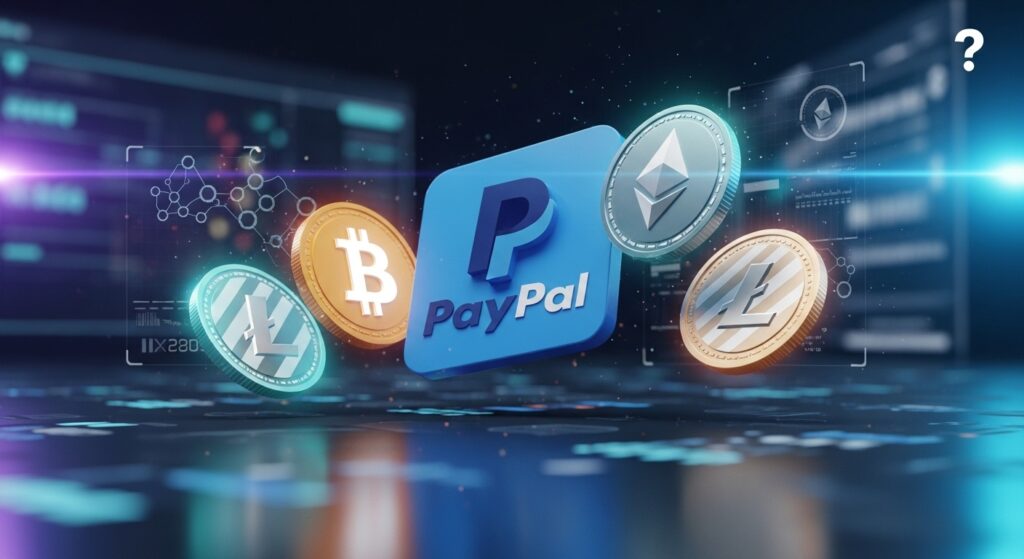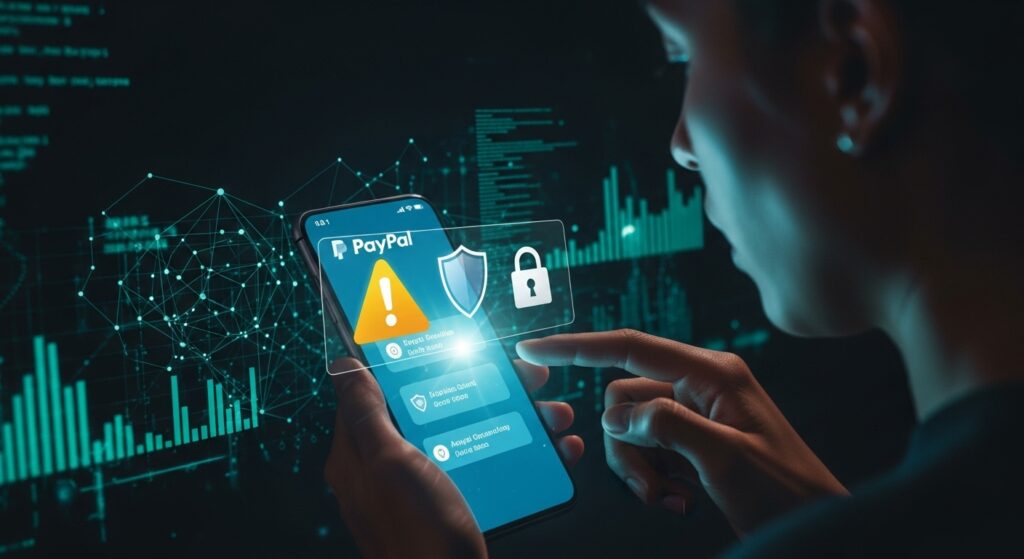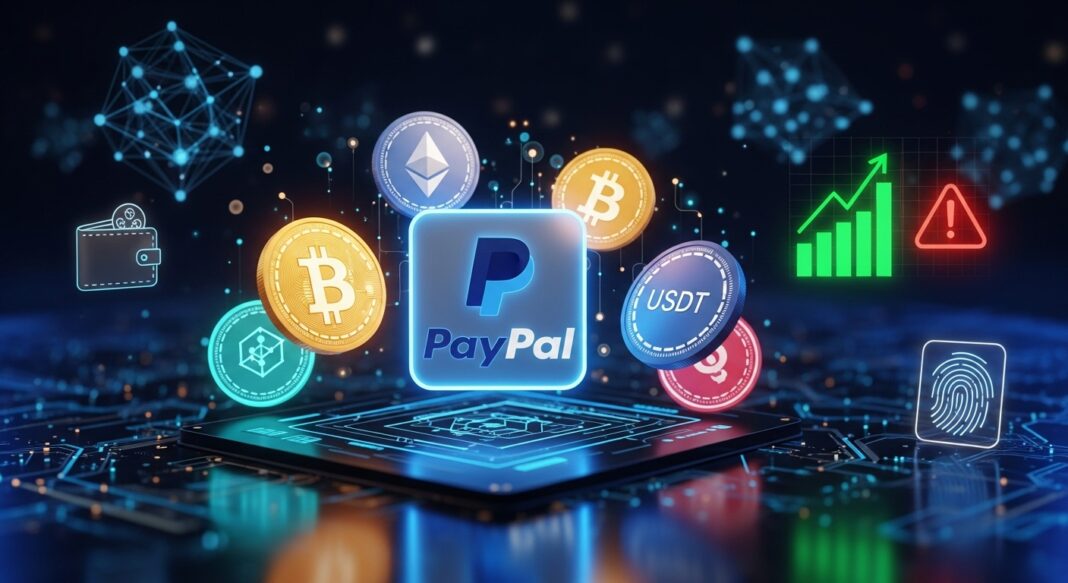PayPal has been a trusted name in digital payments for years, and since 2020, it has expanded into cryptocurrencies. As of July 2025, PayPal offers a range of crypto services for both personal users and businesses, making it an attractive option for those looking to engage with crypto. But is PayPal a good choice for crypto?
Whether you’re a beginner looking to invest in crypto or a business owner considering crypto payments, this guide provides clear, actionable insights to help you make an informed choice.
What Cryptocurrencies Does PayPal Support?
PayPal’s crypto offerings have grown significantly. For personal accounts, you can buy, sell, hold, and spend the following cryptocurrencies:
- Bitcoin (BTC): The most well-known cryptocurrency.
- Ethereum (ETH): A leading platform for decentralized applications.
- Litecoin (LTC): A faster, lighter alternative to Bitcoin.
- Bitcoin Cash (BCH): A fork of Bitcoin focused on faster transactions.
- PayPal USD (PYUSD): PayPal’s stablecoin, pegged to the US Dollar for stability.
For businesses, PayPal introduced the “Pay With Crypto” feature in July 2025, allowing U.S. merchants to accept payments in over 100 cryptocurrencies, including Bitcoin, Ethereum, Tether’s USDT, Circle’s USDC, and many others. This makes PayPal a more versatile option for businesses looking to tap into the growing crypto market.
| Feature | Personal Accounts | Business Accounts |
|---|---|---|
| Supported Cryptocurrencies | BTC, ETH, LTC, BCH, PYUSD | Over 100 cryptocurrencies |
| Buy/Sell/Hold | Yes | Yes (via conversion to fiat/PYUSD) |
| Spend Crypto | Yes (at PayPal merchants) | Yes (via “Pay With Crypto”) |
| Transfer to External Wallet | No | Not applicable (converted at checkout) |
How to Buy and Sell Crypto on PayPal (Personal Accounts)
Buying and selling crypto on PayPal is straightforward, especially for those already familiar with the platform. Here’s how it works:
- Log into your PayPal account via the app or website.
- Go to the Crypto section in the dashboard.
- Select the cryptocurrency you want to buy or sell (e.g., Bitcoin, Ethereum).
- Choose the amount and payment method (PayPal balance, linked bank account, or debit card).
- Review and confirm the transaction.
Fees: PayPal charges a transaction fee for buying and selling crypto, which varies based on the cryptocurrency and transaction amount. For example, fees may range from 1-2% depending on the market value. Always check PayPal’s fee structure before trading (PayPal Crypto Services).
How Businesses Can Accept Crypto Payments on PayPal

PayPal launched the “Pay With Crypto” feature for U.S. merchants, allowing them to accept payments in over 100 cryptocurrencies. Here’s how it works:
- Customer Payment: Customers can pay using crypto wallets like Coinbase, OKX, Phantom, MetaMask, or Exodus.
- Automatic Conversion: At checkout, the crypto is converted to fiat currency (e.g., USD) or PayPal’s PYUSD stablecoin.
- Deposit: The converted funds are deposited into the merchant’s PayPal account.
This feature is particularly valuable for cross-border payments, as it reduces transaction costs and simplifies global commerce. However, it’s currently available only for U.S. merchants (Bloomberg: PayPal to Roll Out Pay With Crypto).
Pros of Using PayPal for Crypto
For Personal Users:
- Ease of Use: PayPal’s platform is intuitive, making it ideal for beginners who may find dedicated crypto exchanges overwhelming.
- Security: PayPal uses encryption and monitors transactions across its platform and merchant sites to protect your account (PayPal Crypto Services).
- Low Entry Barrier: You can start investing with as little as $1, making it accessible for those testing the crypto market.
For Businesses:
- Wide Crypto Support: Accepting over 100 cryptocurrencies allows merchants to cater to a diverse customer base.
- Automatic Conversion: Merchants don’t need to manage crypto directly, as payments are converted to fiat or PYUSD.
- Global Commerce: The feature reduces costs for cross-border payments, expanding business opportunities (PayPal Newsroom).
Cons of Using PayPal for Crypto
For Personal Users:
- Limited Crypto Options: Only five cryptocurrencies are available for personal accounts, compared to hundreds on platforms like Coinbase or Binance.
- No External Wallet Transfers: You cannot move crypto to or from external wallets, limiting flexibility.
- Higher Fees: Transaction fees may be higher than those on dedicated crypto exchanges.
- Lack of Ownership: PayPal holds your crypto, meaning you don’t control the private keys, which reduces your control over your assets.
For Businesses:
- U.S.-Only Feature: The “Pay With Crypto” feature is currently limited to U.S. merchants, restricting its global use.
- Conversion Delays: Depending on market conditions, there may be delays in converting crypto to fiat or PYUSD.
Security Concerns with PayPal Crypto

When you buy crypto on PayPal, you don’t own the private keys—PayPal acts as a custodian for your assets. This has both advantages and drawbacks:
- Convenience vs. Control: PayPal’s custody makes it easier to manage crypto, but you have less control compared to self-custody wallets like MetaMask.
- Security Measures: PayPal employs encryption and monitors transactions to prevent unauthorized activity. They also provide scam prevention tips, such as verifying website legitimacy and reporting suspicious messages to phishing@paypal.com.
- Risks: As a centralized platform, PayPal is vulnerable to hacks or account freezes, though no major crypto-specific breaches have been widely reported (PayPal Cryptocurrency FAQs).
For businesses, the “Pay With Crypto” feature adds security by converting crypto to fiat or PYUSD at checkout, so merchants don’t need to hold volatile cryptocurrencies.
How Does PayPal Compare to Other Crypto Platforms?
Here’s how PayPal stacks up against dedicated crypto exchanges like Coinbase and Binance:
| Feature | PayPal | Coinbase/Binance |
|---|---|---|
| Cryptocurrencies Supported | 5 (personal), 100+ (business) | Hundreds |
| External Wallet Transfers | No (personal accounts) | Yes |
| Fees | Higher (1-2% per transaction) | Lower (0.5-1% or less) |
| Ease of Use | Very beginner-friendly | More complex for beginners |
| Security | Centralized, custodial | Centralized, but offers self-custody |
PayPal is ideal for those who value simplicity and are comfortable with its limitations. Dedicated exchanges offer more flexibility and lower fees but require more technical knowledge.
Is PayPal Crypto Right for You?
For Personal Users:
- Yes, if you’re new to crypto and want a simple way to invest in major cryptocurrencies like Bitcoin or Ethereum.
- No, if you want to trade a wide variety of coins, transfer crypto to external wallets, or have full control over your private keys.
For Businesses:
- Yes, if you’re a U.S. merchant looking to accept crypto payments from a global audience without managing crypto directly.
- No, if you’re outside the U.S. or prefer to receive payments in crypto without automatic conversion.
Future of PayPal Crypto
PayPal’s recent “Pay With Crypto” feature shows its commitment to making crypto mainstream. Future developments may include:
- Expanding the “Pay With Crypto” feature to international merchants.
- Adding more cryptocurrencies for personal accounts.
- Integrating crypto with other PayPal services, like Venmo.
As crypto adoption grows, PayPal is likely to play a larger role in the ecosystem (PayPal Newsroom).
Conclusion
PayPal offers a user-friendly way to engage with cryptocurrencies, making it a solid choice for beginners and U.S. businesses. The “Pay With Crypto” feature, launched in July 2025, expands its appeal by allowing merchants to accept over 100 cryptocurrencies. However, personal users should consider its limitations, such as limited coin options and no external wallet transfers. Whether PayPal is good for crypto depends on your needs: for simplicity and accessibility, it’s a great option; for advanced features and control, you might prefer a dedicated exchange.
Frequently Asked Questions (FAQs)
Q: Can I transfer crypto from PayPal to another wallet?
A: For personal accounts, no, you cannot transfer crypto to or from external wallets. Businesses using “Pay With Crypto” don’t need to, as payments are automatically converted to fiat or PYUSD.
Q: What are the fees for buying and selling crypto on PayPal?
A: PayPal charges transaction fees for buying and selling crypto, typically 1-2% depending on the cryptocurrency and amount. For businesses, conversion fees may apply. Check PayPal’s website for details (PayPal Crypto Services).
Q: Is my crypto safe on PayPal?
A: PayPal uses encryption and transaction monitoring for security. However, since PayPal custodies your crypto, there’s a risk of hacks or account issues. Use strong passwords and enable two-factor authentication.
Q: Can international businesses use PayPal’s “Pay With Crypto” feature?
A: As of July 2025, the feature is available only for U.S. merchants. International availability may be added later.
Q: What is PYUSD, and how is it used?
A: PYUSD is PayPal’s stablecoin, pegged to the US Dollar. It’s used for stable transactions and can be bought, sold, held, or transferred within the PayPal app. For businesses, crypto payments can be converted to PYUSD or fiat.

